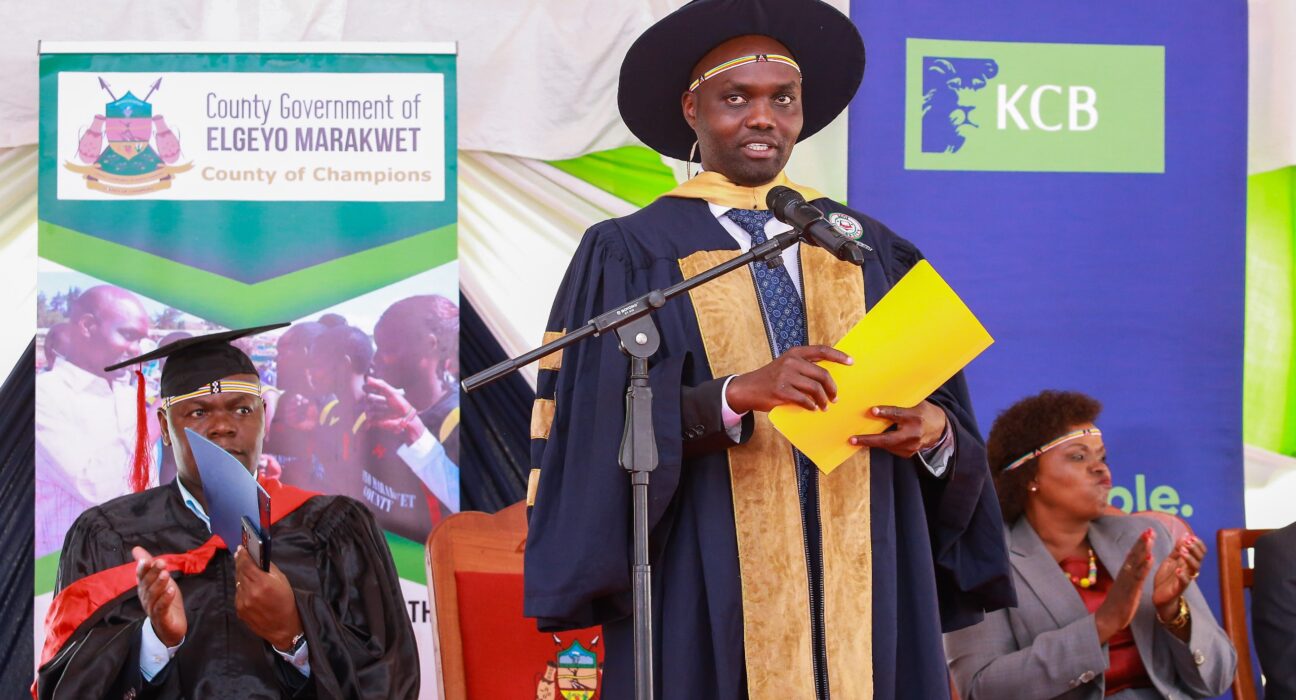In a significant milestone for youth empowerment and skills development, the KCB Foundation, in partnership with the Mastercard Foundation’s Young Africa Works programme, has graduated 800 youth from its flagship 2Jiajiri vocational and enterprise training initiative.
The graduation, held across 10 vocational training centres (VTCs) in Elgeyo Marakwet County, marks a strategic investment in addressing youth unemployment and building microenterprise capacity in Kenya’s rural regions.
“Our goal is to leverage technical and vocational skills as a direct pathway to youth self-employment,” said Mendi Njonjo, Director of the KCB Foundation. “We are intentional about nurturing entrepreneurship, particularly at the grassroots level where the need is most urgent.”
The 2Jiajiri programme delivers 9 months of intensive training, blending:
- Hands-on technical instruction in trades such as agribusiness, construction, automotive engineering, beauty services, and ICT
- Enterprise development modules to strengthen business planning, customer engagement, and financial management
- Access to capital and business toolkits to support start-up ventures
At the graduation ceremony, 120 graduates received business start-up toolkits, giving them the tangible equipment needed to operationalize their skills and begin income-generating activities.
Backed by a multi-year collaboration with the Mastercard Foundation, the programme aligns with the broader Young Africa Works agenda, which seeks to enable 30 million young people across Africa to access dignified and fulfilling work by 2030.
This Elgeyo Marakwet graduation is part of a national roll-out that has, to date:
- Trained over 35,000 youth
- Facilitated the creation of over 150,000 jobs
- Distributed more than 2,000 start-up toolkits
- Disbursed millions in youth enterprise loans
These efforts contribute to Kenya’s Vision 2030 goals and align with government efforts to strengthen the Technical and Vocational Education and Training (TVET) ecosystem as a channel for industrialization and job creation.
The event was attended by stakeholders from:
- Elgeyo Marakwet County Government
- TVETA (Technical and Vocational Education and Training Authority)
- NITA (National Industrial Training Authority)
- Trainers and administrators from participating Vocational Training Centres
Their presence underscores a multi-sector approach to solving youth unemployment and nurturing sustainable local economies.
Youth unemployment remains a pressing issue in Kenya, with millions of young people entering a job market unable to absorb them. The 2Jiajiri programme represents a shift from traditional job-seeking to entrepreneurship and job creation, particularly in underserved counties.
“This programme isn’t just about skills—it’s about dignity, confidence, and possibility,” added Njonjo. “By equipping young people to create value in their communities, we are laying the foundation for long-term economic resilience.”
Kenya’s informal economy accounts for over 80% of employment, yet it often suffers from poor capitalization, inconsistent training, and limited market access. Programmes like 2Jiajiri are critical in professionalizing the informal sector, boosting productivity, and connecting youth with sustainable income opportunities.
The 2Jiajiri initiative remains a key pillar in KCB Foundation’s economic inclusion strategy, focused on entrepreneurship, financial literacy, and access to capital.
With youth at the heart of Kenya’s demographic and economic future, the 2Jiajiri graduation in Elgeyo Marakwet signals a high-impact model of public-private partnership, skills development, and local empowerment.
As thousands of graduates venture into business, backed by tools, training, and networks, the programme continues to shape a generation of changemakers, job creators, and community leaders.





